Nie daj się wyprzedzić!
Bądź w gronie pierwszych, którzy dowiedzą się o rozpoczęciu rekrutacji na nowy kierunek studiów licencjackich.
Podaj swój adres e-mail, a powiadomimy Cię od razu, gdy nabór ruszy. Dzięki temu zyskasz przewagę nad innymi kandydatami.

Studia licencjackie niestacjonarne to idealne rozwiązanie dla osób, które chcą łączyć naukę z pracą lub innymi obowiązkami. Dzięki elastycznemu harmonogramowi, tego rodzaju studia umożliwiają zdobycie wykształcenia wyższego bez konieczności rezygnowania z dotychczasowych aktywności. Oto kilka kluczowych zalet, które sprawiają, że warto rozważyć tę formę kształcenia.
Jednym z największych atutów studiów niestacjonarnych jest elastyczność. Zajęcia odbywają się zazwyczaj w weekendy, co pozwala na kontynuowanie pracy na pełen etat lub realizację innych ważnych zobowiązań. To doskonała opcja dla osób, które cenią sobie możliwość samodzielnego planowania czasu i chcą rozwijać swoje kwalifikacje zawodowe bez konieczności codziennego uczestnictwa w zajęciach.
Studia niestacjonarne umożliwiają jednoczesne zdobywanie doświadczenia zawodowego, co jest niezwykle cenne na rynku pracy. Pracując i studiując jednocześnie, studenci mają okazję od razu stosować zdobytą wiedzę w praktyce, co zwiększa ich kompetencje i atrakcyjność dla pracodawców. Taka kombinacja teorii i praktyki to klucz do sukcesu w wielu branżach, gdzie liczy się nie tylko wiedza, ale także umiejętność jej zastosowania w rzeczywistych sytuacjach.
Podczas studiów niestacjonarnych studenci często mają okazję poznać osoby już aktywne zawodowo w różnych branżach. To świetna okazja do nawiązywania cennych kontaktów, które mogą zaowocować przyszłymi współpracami, stażami czy ofertami pracy. Networking w środowisku akademickim połączony z doświadczeniem zawodowym to doskonały sposób na budowanie kariery.
Studia niestacjonarne uczą samodzielności i organizacji czasu, co jest niezwykle cenną umiejętnością w życiu zawodowym. Studenci muszą sami planować naukę i efektywnie zarządzać swoim czasem, co rozwija umiejętności zarządzania projektami oraz pracy pod presją czasu. Tego rodzaju doświadczenie jest wysoko cenione przez pracodawców i może stanowić przewagę na rynku pracy.
Dzięki elastycznemu harmonogramowi studiów niestacjonarnych, studenci mają więcej czasu na rozwijanie swoich pasji i zainteresowań. Może to być doskonała okazja do podjęcia dodatkowych kursów, nauki języków obcych, czy angażowania się w działalność społeczną lub wolontariat. To wszystko wzbogaca życiorys i czyni absolwenta bardziej wszechstronnym kandydatem na rynku pracy.
Studia niestacjonarne to opcja, która otwiera drzwi do edukacji wyższej dla osób w różnym wieku i z różnym doświadczeniem życiowym. To doskonały wybór zarówno dla młodych ludzi, którzy dopiero wkraczają na rynek pracy, jak i dla osób, które chcą zmienić swoje kwalifikacje lub rozwijać się w nowej dziedzinie. Niezależnie od wieku, studia te dają szansę na zdobycie nowej wiedzy i umiejętności, które mogą otworzyć drzwi do nowych zawodowych wyzwań.
Studia licencjackie niestacjonarne to inwestycja w przyszłość, która pozwala na zdobycie wykształcenia bez rezygnacji z pracy czy innych obowiązków. Dzięki elastycznemu harmonogramowi, niższym kosztom oraz możliwości łączenia nauki z praktyką, studia te stają się atrakcyjną opcją dla osób pragnących rozwijać się zawodowo i osobowo. To doskonały wybór dla tych, którzy cenią sobie możliwość samodzielnego planowania swojej kariery i życia.

Oferta studiów licencjackich na kierunku Pedagogika skierowana jest do absolwentów szkół średnich. Warunkiem niezbędnym jest ukończenie szkoły średniej wraz ze zdaniem egzaminu maturalnego. Od osób zainteresowanych podjęciem studiów wymagana jest umiejętność posługiwania się językiem obcym nowożytnym na poziomie podstawowym.
Studia trwają 3 lata i kończą się uzyskaniem tytułu licencjata pedagogiki. Studia umożliwiają zdobycie podstawowej wiedzy z zakresu pedagogiki, psychologii, socjologii niezbędnej do zrozumienia społeczno-kulturowego kontekstu kształcenia, wychowania i pracy opiekuńczej oraz do kształtowania własnego rozwoju zawodowego. W trakcie studiów studenci zdobywają umiejętność komunikacji społecznej, posługiwania się warsztatem diagnostycznym w celu opisywania, analizowania, interpretowania oraz projektowania złożonych strategii i działań pedagogicznych, w zakresie praktycznego działania oraz tworzenia własnego warsztatu metodycznego. Umiejętności praktyczne (metodyczne, warsztatowe) uzyskują w toku zajęć o charakterze metodycznym w powiązaniu z realizowaną praktyką zawodową, w obrębie wybranej specjalności. Studenci uczą się refleksyjnego spojrzenia na własną rolę zawodową oraz pogłębionego rozumienia rzeczywistości edukacyjnej. Poszczególne specjalności nadają kwalifikacje zawodowe.
Realizowana na kierunku Pedagogika koncepcja kształcenia przewiduje:
Absolwent kierunku Pedagogika uzyskuje tytuł zawodowy licencjata, ma również możliwość kontynuowania kształcenia na innych kierunkach studiów drugiego stopnia i podyplomowych.
Regulamin praktyk specjalność doradztwo zawodowe i personalne
Regulamin praktyk specjalność pedagogika opiekuńczo-wychowawcza z opieką żłobkową
Regulamin praktyk specjalność pedagogika resocjalizacyjna
Pomorska Szkoła Wyższa wspiera studentów w zakresie korzystania z infrastruktury w ramach kształcenia z wykorzystaniem metod i technik kształcenia na odległość. W PSW kształcenie w formie zdalnej prowadzone jest w oparciu o usługę MS Teams. W Uczelni prowadzone są szkolenia, które służą odpowiedniemu przygotowaniu studentów do korzystania z narzędzi e-learningowych.
Uczelnia oferuje studentom pomoc w postaci możliwości skorzystania z darmowego Internetu lub zainstalowania odpowiedniego oprogramowania. Studenci poza godzinami odbywania zajęć mogą, w celu napisania pracy zaliczeniowej (etapowej) czy pracy dyplomowej, korzystać z pracowni komputerowych znajdujących się w siedzibie Uczelni.
Studia w Pomorskiej Szkole Wyższej odbywają się w trybie hybrydowym. Konwersatoria, zajęcia laboratoryjne oraz ćwiczenia warsztatowe odbywają się w siedzibie Uczelni. Zajęcia realizowane są również w siedzibach instytucji partnerskich.
Budynek Uczelni jest dostosowany do potrzeb osób z niepełnosprawnościami.
W ramach wsparcia w procesie uczenia się oraz w obszarze dobrostanu i dbania o zdrowie psychiczne, studentki i studenci korzystać mogą ze specjalistycznych porad Akademickiego Centrum Pomocy Psychologiczno-Pedagogicznej, Biura ds. Osób z Niepełnosprawnościami oraz Centrum Wsparcia Prawnego.
Absolwent kierunku Pedagogika uzyskuje tytuł zawodowy licencjata, jest przygotowany do podjęcia pracy w różnych placówkach realizujących działania edukacyjne, kulturalne i oświatowe, a także do podjęcia studiów II stopnia.
Absolwent specjalności doradztwo zawodowe i personalne:
Absolwent tej specjalności jest przygotowany do podjęcia zatrudnienia jako doradca zawodowy w urzędach pracy, ośrodkach pomocy społecznej, w działach kadrowych i HR, publicznych służbach zatrudnienia (powiatowych i wojewódzkich urzędach pracy, centrach informacji i planowania kariery zawodowej); Ochotniczych Hufcach Pracy (m.in. w Centrach Edukacji i Pracy Młodzieży, Młodzieżowych Biurach Pracy, Mobilnych Centrach Informacji Zawodowej, Klubach Pracy); agencjach zatrudnienia (m.in. w agencjach pośrednictwa pracy, agencjach poradnictwa zawodowego, agencjach doradztwa personalnego i pracy tymczasowej); instytucjach szkoleniowych (publicznych oraz konsultingowych); instytucjach dialogu społecznego; instytucjach partnerstwa lokalnego; Akademickich Biurach Karier; Gminnych Centrach Informacji; Ośrodkach Wspierania Przedsiębiorczości; działach personalnych przedsiębiorstw; organizacjach pozarządowych.
Absolwenci będą mogli zaistnieć na rynku pracy również jako: doradca zawodowy w szkołach, placówkach wychowania pozaszkolnego, placówkach zapewniających opiekę i wychowanie uczniom w okresie pobierania nauki poza miejscem stałego zamieszkania; doradca zawodowy w poradniach psychologiczno-pedagogicznych.
Absolwent specjalności pedagogika opiekuńczo-wychowawcza z opieką żłobkową:
Absolwent specjalności pedagogika opiekuńczo-wychowawcza z opieką żłobkową przygotowany jest do podjęcia pracy w placówkach opiekuńczo-wychowawczych (żłobki, kluby dziecięce, domy dziecka, pogotowie opiekuńcze, izba dziecka, internat, bursa), świetlicach szkolnych, środowiskowych), poradniach wychowawczych, ośrodkach wczasów dziecięcych, sanatoriach.
Absolwent specjalności pedagogika resocjalizacyjna:
Kompetencje zawodowe absolwenta tej specjalności pozwalają na podjęcie pracy w placówkach resocjalizacyjnych funkcjonujących w środowiskach otwartych (kuratorskich ośrodkach pracy z młodzieżą, świetlicach socjoterapeutycznych i innych), a także w instytucjach resocjalizacyjnych o charakterze zamkniętym (np. zakładach karnych, poprawczych, schroniskach dla nieletnich).
Absolwent uzyskuje tytuł zawodowy licencjata. Studia dają przygotowanie do podjęcia studiów II stopnia.














Celem specjalności jest przygotowanie studenta do podjęcia pracy w instytucjach tzw. Systemu zarządzania kryzysowego.
Absolwent specjalności zarządzanie kryzysowe zdobywa wiedzę, umiejętności i kompetencje społeczne w obszarze tematyki sytuacji kryzysowych, ich przyczyn oraz możliwych skutków dla życia, zdrowia, mienia oraz środowiska naturalnego.
Perspektywy zawodowe – gdzie można znaleźć pracę, po ukończeniu specjalności:
Przedmioty:
Celem specjalności jest przygotowanie do podjęcia pracy na stanowiskach m in. z zakresu funkcjonowania państwa, a także bezpieczeństwa publicznego.
Dzięki tej ścieżce absolwent rozwinie wiedzę, umiejętności i kompetencje społeczne z zakresu ogólnych warunków i instytucji chroniących życie, zdrowie, mienie obywateli oraz majątek ogólnonarodowy, ustrój i suwerenność państwa przed zjawiskami groźnymi dla ładu prawnego. Ponadto absolwent rozwinie wiedzę, umiejętności i kompetencje społeczne z zakresu zagrożeń w cyberprzestrzeni.
Perspektywy zatrudnienia – gdzie można znaleźć pracę, po ukończeniu specjalności:
Przedmioty:
Celem specjalności jest przygotowanie do prowadzenia działań w zakresie edukacji i szeroko rozumianej profilaktyki zdrowia oraz systemu opieki zdrowotnej w kraju.
Absolwent specjalności bezpieczeństwo zdrowotne rozwinie wiedzę, umiejętności i kompetencje społeczne z zakresu ochrony człowieka przed chorobami, niezdrowym stylem życia czy zmianami klimatycznymi.
Podczas studiów nauczy się jak przekazywać wiedzę na temat zdrowia i chorób a także jak koordynować działania służb medycznych w sytuacjach kryzysowych w tym wiedzę i umiejętności praktyczne z zarządzania placówkami w ochronie zdrowia.
Perspektywy zawodowe – gdzie można znaleźć pracę, po ukończeniu specjalności:
Przedmioty:

Ścieżka ta umożliwi Ci poznanie struktur organizacyjnych, kompetencji oraz zasad funkcjonowania podmiotów odpowiedzialnych za zapewnienie bezpieczeństwa i zwalczanie przestępczości. W jej ramach rozwiniesz wiedzę z dziedziny prawa karnego, w ujęciu materialnym i procesowym. Zgłębisz zagadnienia z zakresu kryminologii, penologii i polityki karnej. Opanujesz metody pomiaru i analizy ilościowej zjawiska przestępczości. Poznasz struktury przestępczości zorganizowanej oraz jawne i niejawne sposoby walki z nią. Rozwiniesz umiejętności pracy z indywidualnym przypadkiem (metoda studium przypadku – zbieranie informacji, weryfikacja, prowadzenie rozmowy i przygotowanie planu profilaktycznego, naprawczego lub interwencyjnego). Nauczymy Cię jak prowadzić przesłuchanie oraz jak przesłuchać w charakterze świadka osobę starszą albo dziecko. Zdobędziesz podstawową wiedzę o zabezpieczaniu miejsca zdarzenia (przestępstwa) i śladów. Dowiesz się w jaki sposób zdjąć odciski palców z różnych powierzchni oraz jak zdjąć ślad zapachowy czy zabezpieczyć odcisk buta w śniegu.
Dzięki tej specjalności będziesz wysoko wykwalifikowanym specjalistą przygotowanym do pracy w centrach pomocy rodzinie i ośrodkach interwencji kryzysowej. Nauczysz się jak poznawać potrzeby podopiecznych danych placówek i planować ich rozwój w sferze osobistej i zawodowej. Zdobędziesz wiedzę i kompetencje niezbędne do identyfikowania oraz analizowania różnego rodzaju zjawisk w sferze rozwoju i bezpieczeństwa społecznego. Będziesz umiejętnie diagnozować i rozwiązywać skomplikowane problemy z zakresu dewiacji, patologii społecznych oraz wiktymologii. Program studiów tej specjalności obejmuje, m. in. zajęcia z wybranych zagadnień z: pedagogiki, psychologii, socjologii, prawa, biomedycznych podstaw rozwoju i wychowania. Przed Tobą, także przedmioty z zakresu: kryminalistyki i kryminologii (zagadnienia zielonej kryminologii, cyberprzestępczości, przestępczości zorganizowanej i gospodarczej), metod i technik pracy resocjalizacyjnej i kryminalistycznej, metod pracy z: osobami uzależnionymi, nieletnimi sprawcami przestępstw i ofiarami przestępstw.
Kierunek ten przygotuje Cię do podjęcia pracy w takich organach, instytucjach lub służbach, jak:
Będziesz mógł, również zostać kuratorem sądowym.
Studia te umożliwią Ci zdobycie wiedzy i umiejętności niezbędnych do pracy w: państwowych i samorządowych instytucjach i urzędach, świetlicach socjoterapeutycznych, placówkach wsparcia dziennego i placówkach oświatowych - realizujących zajęcia wychowawcze i profilaktyczne, organizacjach pozarządowych i innych instytucjach zajmujących się sprawami: bezpieczeństwa, przestępczości, przestrzegania praw człowieka oraz ochrony ofiar przestępstw.
Rozwiniesz, także umiejętności i kompetencje przydatne do podjęcia zatrudnienia w sektorze prywatnym, m.in. w: specjalistycznych formacjach ochronnych, agencjach ochrony osób i mienia czy firmach detektywistycznych.


Pomorska Szkoła Wyższa
w Starogardzie Gdańskim
ul. Kościuszki 112/114
83-200 Starogard Gdański
woj. Pomorskie
Zamiejscowy Dział Obsługi
Studenta PSW
Plac Powstańców Sląskich 1,
53-329 Wrocław
Pomorska Szkoła Wyższa
w Starogardzie Gdańskim
to pierwsza uczelnia wyższa
na Kociewiu, która powstała
w 2001 roku.
PSW prowadzi studia I i II stopnia
oraz podyplomowe i kształci studentów
na kierunkach: Administracja, Kryminologia,
Pedagogika, Logistyka,
Bezpieczeństwo wewnętrzne,
Bezpieczeństwo państwa i ochrona ludności.